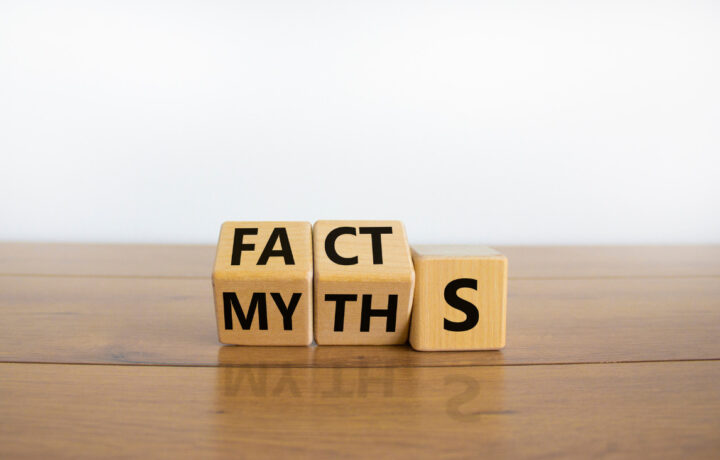What it’s really like to work in defense consulting
Booz Allen is known for its work in defense. In fact, about half of the firm’s business is in the global defense sector, supporting all types of interesting missions.
They’ve worked on Moon missions with NASA, created cutting-edge tech for the digital battlespace, and helped the Navy introduce new undersea warfare capabilities—just to name a few.
While defense work is exciting, people often have misconceptions about working in government consulting for defense. To get to the bottom of these common misunderstandings, Booz Allen spoke with a few of their experts who have worked in the industry for years. Here’s what they had to say.
Myth 1: The government lags 10 to 20 years behind the commercial sector.
Technology Director Jason Myers says that there are two pieces to unpack here: the technology itself—and the adoption of the technology. “The government is like any large organization, so adoption can be difficult,” he says. “You’ve got hundreds of thousands of users across disparate locations that need reliability and security.”
However, the idea that the government has a slow approach toward innovation is “truly fictional,” he says. Since some of the coolest work is highly classified, the innovation and the mission impact it makes can’t be publicized. “The government entities we work with are not simply ‘fast followers,’” adds Jason. Rather, “they’re working with Booz Allen and our partners to take what we create and use it to help safeguard the nation.”
Myth 2: All of the work requires a security clearance.
The requirement for a security clearance varies across clients and projects. Chief Scientist Laura Croft started her career at Booz Allen with no security clearance at all. Think of it this way: “Much of the actual technology development we’re doing is unclassified, while the details around the client, the mission, and the reason you’re doing certain things—that part is classified,” she says.
Over time, Laura obtained her security clearances at the firm, giving her a deeper understanding of her clients’ needs. “From my experience, the technology work that I was doing was challenging and fun in and of itself,” says Laura. “Learning more about the purpose behind the mission was just icing on the cake—I learned what I’m doing is for a really good cause.”
Myth 3: There isn’t any flexibility, and you’ll need to go into the office every day.
Joe Reck, a senior lead engineer, supports a Washington, DC, client from his home office in Seattle. “99% of my work is remotely delivered at home. There are occasional classified meetings that I go into the base for, but most days, I’m at my home office.”
While this isn’t true for every role—some require in-person or sensitive compartmented information facility (SCIF) work—Booz Allen always emphasizes flexibility and balance.
Myth 4: The work is monotonous.
Ki Lee is the chief technology officer for Booz Allen’s global defense business, and he has worked at the firm for over two decades. This idea is a myth, he says, because “the work can’t be monotonous when you’re focusing on the mission.”
Ki says the inherent importance of the work we’re doing in the defense industry is motivating, and it’s fulfilling to see the work pay off in real-world ways. “I’ve worked on counter-drug; counter-terrorism; command and control/intelligence, surveillance, reconnaissance (C2/ISR) space missions; and much more over my 20 years,” says Ki. “I still learn something new every single day.”
Combine your passion for technology with work that matters.
Join Us. The world can’t wait.
Explore careers today!
SPONSORED CONTENT: This content is written on or behalf of our Sponsor.




